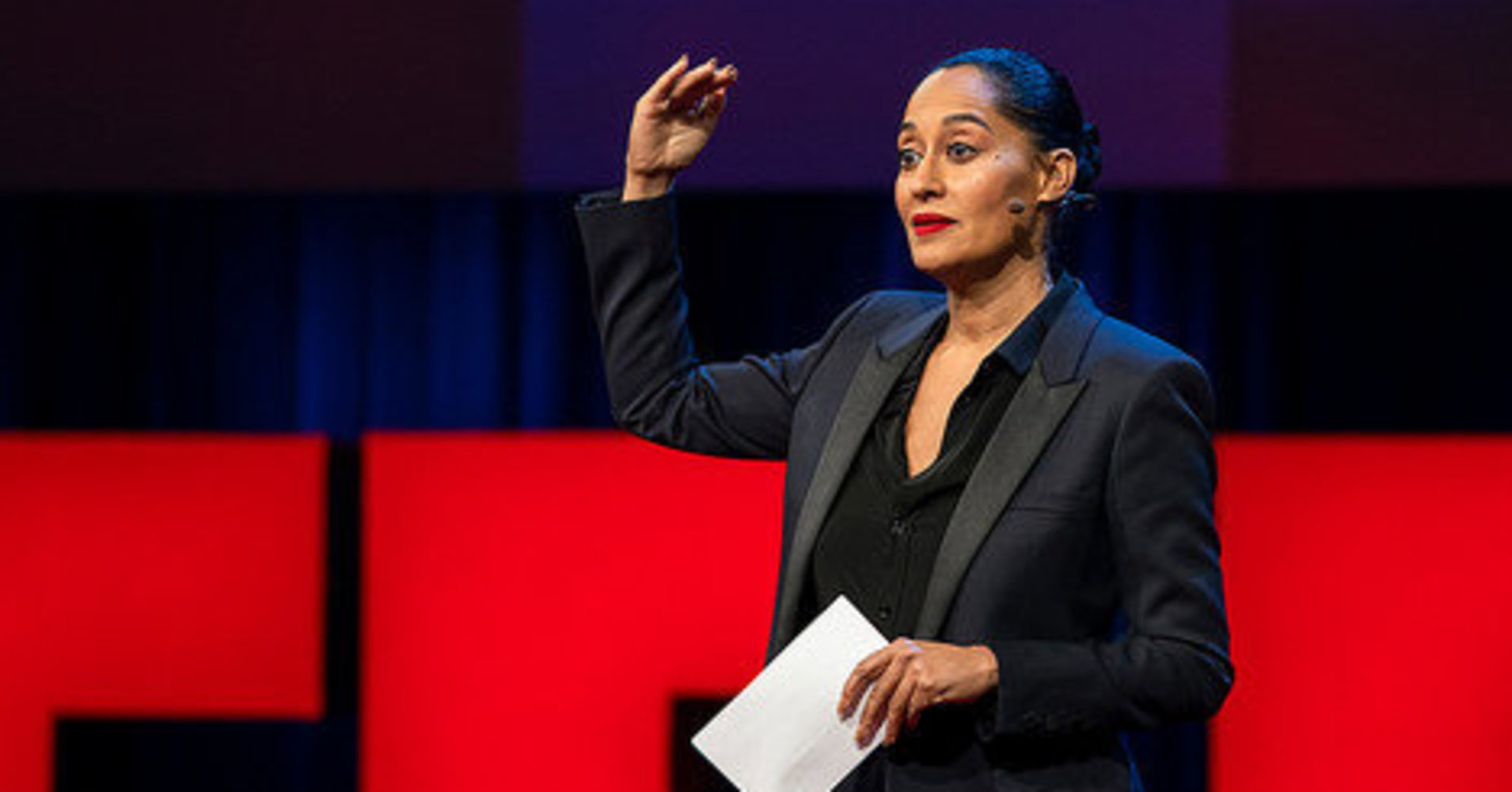[ad_1]

Tracee Ellis Ross is encouraging women to acknowledge and welcome their fury.
The actress gave a powerful TED Talk this month at the annual TED Conference in Vancouver, Canada, about the spectrum of objectification women have faced for hundreds of years, and the anger women harbor because of it.
“Women, I encourage you to acknowledge your fury,” Ross said. “Give it language. Share it in safe places of identification and in safe ways. Your fury is not something to be afraid of. It holds lifetimes of wisdom. Let it breathe and listen.”
Ross, 45, opened her 10-minute talk with an anecdote about a friend who was at the post office filling out a form when a man physically put his hands on her and moved her out of the way so he could get to something she was blocking. In retelling this story to Ross, her friend said she wasn’t annoyed or frustrated ― she was downright furious.
Women, I encourage you to acknowledge your fury … Your fury is not something to be afraid of. It holds lifetimes of wisdom. Let it breathe and listen.
Tracee Ellis Ross
“This fury was not my friend’s alone. Her fury was ignited by lifetimes of men helping themselves to women’s bodies without consent,” Ross said. “There’s a culture of men helping themselves to women, and in this case, in a seemingly innocuous way, where a woman’s body is like a saltshaker: ‘Get out of the way so I can get to the fries.’”
To the men in the room, Ross likened this experience to a stranger taking your phone out of your hand every day. The stranger says, “I don’t know why you’re getting so upset … I’m going to give it back to you as soon as I’m done,” or “Well, I mean, you got a fancy phone case,” or “You shouldn’t have taken it out of your pocket.”
“Somehow, no one ever talks about the person who took the cellphone,” Ross said. “Men are so used to helping themselves, that it’s like … [shrugging] they can’t help themselves. And not because men are fundamentally less moral, but because this is a very big blind spot for most men.”
She continued to break down the historical significance of women’s fury:
When someone helps themselves to a woman, it not only triggers discomfort and distress, but the unspoken experiences of our mothers’ lives, sisters’ lives and generations of women before us. That’s lifetimes of women dealing with men who assume they know better for us than we know for ourselves, being the property of husbands, landowners, and having old, white men tell us the fate of our lady parts; lifetimes of having our bodies used for love and objects of desire, instead of bodies that we get to wield and use as we choose; lifetimes of knowing that whether we play by their rules or not, we still have to tolerate harassment, assault and even worse; lifetimes of our bodies being used as property that can be hit and hurt, manipulated and moved and like objects that are not deserving of respect; lifetimes of not being able to express the anger of our bodies. It’s no wonder we feel this fury. And if you add in the history of race ― which is a whole other talk ― it gets exponentially more complicated.
Her friend’s fury, Ross said, “holds centuries of never being able to directly address or express [women’s] indignation, our frustration and our rage.”
When someone helps themselves to a woman, it not only triggers discomfort and distress, but the unspoken experiences of our mothers’ lives, sisters’ lives and generations of women before us.
Tracee Ellis Ross
“Women have been trained to think that we are overreacting or that we’re being too sensitive or unreasonable,” she continued. “We try to make sense of nonsense, and we swallow the furious feelings. We try to put them into some hidden place in our minds, but they don’t go away. That fury sits deep inside as we practice our smiles … and try to be pleasant … because apparently, women aren’t supposed to get angry.”
Ross concluded her talk on a powerful note, referencing the anti-sexual-violence Time’s Up movement created in January by dozens of women in Hollywood.
“Today, the global collection of women’s experiences can no longer be ignored. Time’s up on thinking that we’re overreacting or ‘This is just the way it is.’ Time’s up on women being held responsible for men’s bad behavior,” she said. “It is men’s responsibility to change men’s bad behavior.”
[ad_2]
Source link

